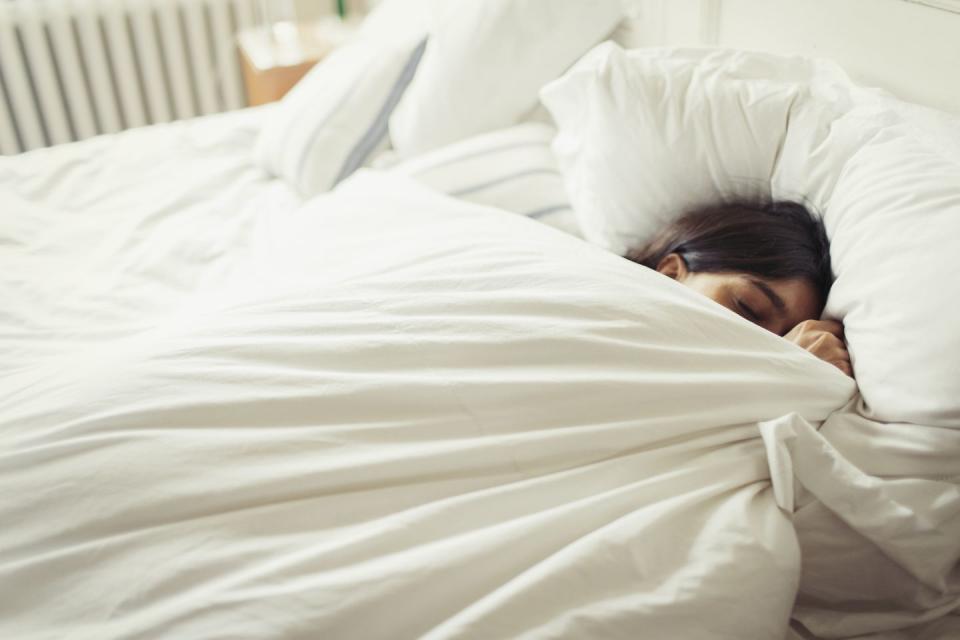Gravity blankets: are weighted blankets the solution to anxiety and insomnia?

Stress, anxiety and insomnia are on the rise. While there are a number of treatments available for these conditions, the comforting embrace of a gravity blanket might be the solution you didn't know you needed.
What is a gravity blanket?
A gravity blanket, also known as a weighted blanket, is essentially a cover that is marginally heavier than traditional duvets thanks to well placed weights, usually sewn into the hem in the form of rice or small glass beads.
Gravity blankets are soft and comfortable, and create the feeling of a gentle embrace, similar to how a parent might swaddle a baby to sleep.
They come in varying weights, with the idea that you choose one which is approximately 10 per cent of your body weight to reap the de-stressing rewards.
What are the gravity blanket benefits?
The majority of people battling with anxiety also experience sleep problems. According to research, gravity blankets are just the ticket for combatting both anxious feelings and insomnia:
➡️ Anxiety
Speaking to Prevention.com, American therapist Donna Durham was impressed at how beneficial weighted blankets proved to be for her clients who were suffering from anxiety.
"I had some clients who just then started incorporating it into their self-care - to the point where they would have a weighted blanket in their car, or in a special bag, so if they had panic attacks, they would use them to interrupt those attacks," says Durham.
❗ There is research to back this up, with a recent study finding that 63% of people reported lower anxiety after use.
➡️ Sleep problems
Weighted blankets are said to provide a calming experience, and the fact that they are heavier than regular blankets or duvets helps to decrease tossing and turning during the night. In the 2015 Journal of Sleep Medicine and Disorders, a study found that a weighted blanket helped those with insomnia sleep better, stating:
"We found that sleep bout time increased, as well as a decrease in movements of the participants, during weighted blanket use."
"Subjectively, the participants liked sleeping with the blanket," the report continues. "They found it easier to settle down to sleep and had an improved sleep, where they felt more refreshed in the morning. Overall, we found that when the participants used the weighted blanket, they had a calmer night’s sleep."

How do gravity blankets work?
The underlying science behind gravity blankets is down to Deep Touch Pressure (DTP). This is the theory that gently applying pressure to the body encourages the release of serotonin. Serotonin is a neurotransmitter most often associated with happiness and relaxation.
DTP is also said to reduce the production of cortisol, a stress hormone that induces anxiety-like symptoms such as increased heart rate, blood pressure, and muscle tension. Serotonin is also the precursor to melatonin, the hormone which regulates sleep.
Are there any drawbacks?
If you choose the right weight for you, there aren't any reported side effects of using a gravity blanket that are currently known. However, the science is still limited.
"More studies with large sample sizes need to be done to truly determine how effective they are," says Sandy Capaldi, PsyD, licensed clinical psychologist and associate director for Center for the Treatment and Study of Anxiety at the University of Pennsylvania.
❗ If you think you might be suffering from a mental health disorder including anxiety or insomnia, visit your GP to discuss a treatment plan.
('You Might Also Like',)


